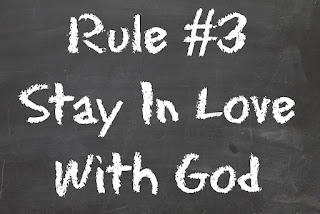God makes the sun rise on both the evil and the good and sends rain on both the righteous and the unrighteous. Matthew 5:45b Common English BibleI’ve always liked rainy days. I like the shades of the clouds and the way the light draws my attention to things I hadn’t noticed when the sun was shining. I like the patterns of water on the sidewalk, the circles of wetness, then the shiny, full-of-water places which contrast with the dull gray, wet but not satiated spots.
I saw my first Van Gogh a couple years ago when I was visiting family and we went to the Philadelphia Museum of Art.
 |
| This isn't a great picture.. The colors of the original were amazing. |
There’s something about rainy days. They’re nice when you can curl up with an afghan, some tea, and a book. Not so nice when the cracks in the basement start seeping. Still, with a roof overhead and no place to go, they offer us gifts.
I used to say that these days allowed me to give in to my melancholy nature. But I’ve rethought that. Melancholy is a feeling of pensive sadness, often with no clear reason. I’m not generally sad when I’m this way but I am pensive.
If you read the Harry Potter stories, you’re familiar with the “Pensieve” as an object, a bowl. The author gives the word substance rather than defining it. Which was fitting for the story, but I still like definition and clarity.
When I’m pensive, I’m contemplative – reflective, musing, meditative, introspective. (If you’re an extrovert, this may seem a little foreign, or maybe not. As we grow, we tend to get in touch with other aspects of ourselves. Form myself, I’ve learned to talk with people and sometimes even think out loud.)
Today, it’s raining. And it’s the first day of fall. A perfect day to spend reflecting on one’s life and the world around us. Your thoughts and questions would, of course, be different from mine which tend to be prayerful as I open myself up to what God would reveal. They’re questions about purpose and hopes, longings and maybe some regrets. What is my direction? Am I missing something? Am I on my best path? Who around me could I notice more? Or less?
I have plenty of other questions. One that crops up regularly is, how do I do what has to be done and still have time for –––? (fill in the blank) But this question doesn’t come up so much when I’m in my pensive place.
Where, or when, do you let yourself just "be", opening yourself to your heart’s questions?
Many people are uncomfortable with questions and work very quickly to provide answers and ease their distress. If you’re like this, that’s okay. Accept it as a starting place but don’t stay there. Questions have so much to offer us when we don’t rush to close them.
Instead, adventure briefly into unfamiliar waters by sitting with the questions. If it’s too uncomfortable, set a timer. Tell yourself that for five minutes you won’t try to answer; you’ll just be present with whatever offers itself. You can do this. And after you try it a few times, I’m guessing you’ll come to see the value of questions.
Happy Autumn! (Or, to you folks on the top-side of my upside-down globe, Happy Spring!)
Pour down, you heavens above, and let the clouds flow with righteousness.Let the earth open for salvation to bear fruit; let righteousness sprout as well. I, the Lord, have created these things. Isaiah 45:8 CEB






